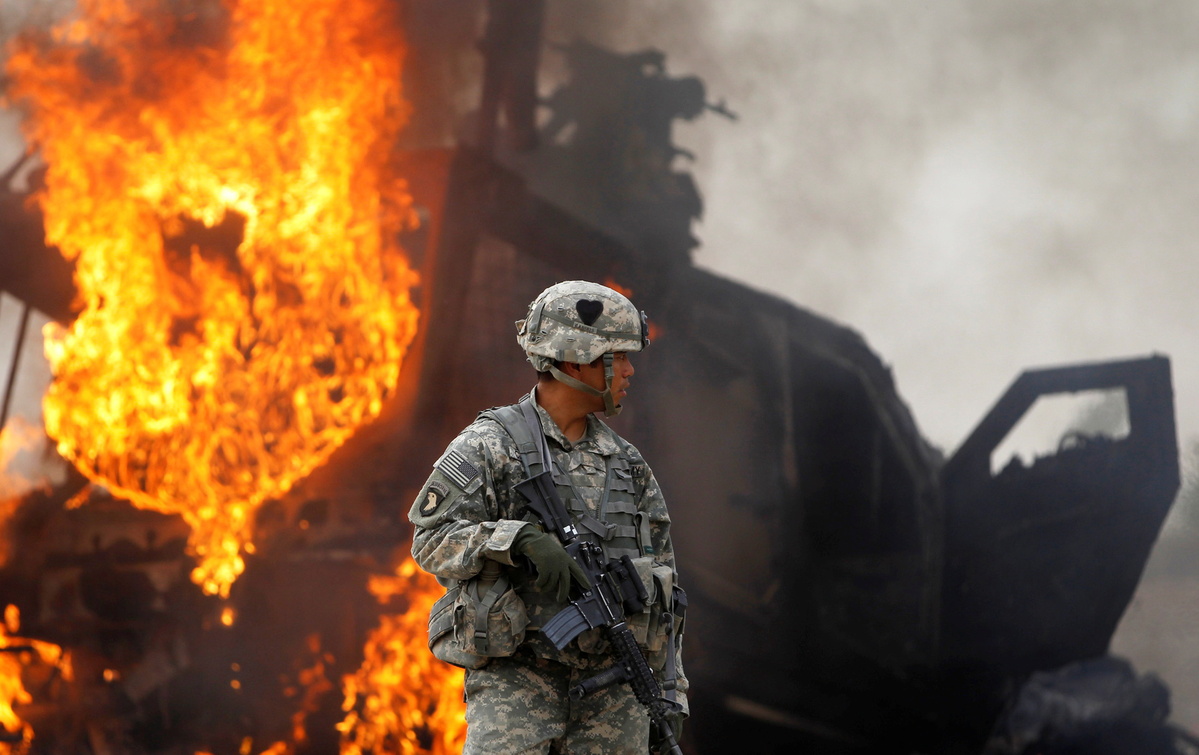United States pullout in Afghanistan creates doubt
By AI HEPING in New York and MO JINGXI in Beijing | CHINA DAILY | Updated: 2021-04-16 06:58

Speaking from the same spot in the White House where former president George W. Bush announced the start of the war in Afghanistan on Oct 7, 2001, US President Joe Biden formally announced on Wednesday that the United States will withdraw all forces from the country, ending its longest war.
"It is time for American troops to come home," he said in the White House Treaty Room in announcing the withdrawal, saying it would be complete by Sept 11, the 20th anniversary of the 9/11 terrorist attacks on the World Trade Center and the Pentagon that led the US into the war.
"We cannot continue the cycle of extending or expanding our military presence in Afghanistan hoping to create the ideal conditions for our withdrawal, expecting a different result," Biden said as he set out a withdrawal plan that ultimately will not be conditions-based.
Foreign troops under NATO command will withdraw from Afghanistan in coordination with a US pullout by Sept 11, NATO allies agreed on Wednesday, Reuters reported.
Afghan President Ashraf Ghani voiced support for the phased withdrawal plan after speaking with Biden by phone on Wednesday. "The Islamic Republic of Afghanistan respects the US decision, and we will work with US partners to ensure a smooth transition," Ghani said in a statement.
But the speaker of Afghanistan's parliament said on Wednesday that the complete withdrawal of foreign troops from Afghanistan poses the threat of a civil war.
"The withdrawal of these forces is a desire of the Afghan people, but at the moment, the conditions have not been made for this to happen; there is a possibility of the return of civil war, and this will change Afghanistan into a hub of international terrorism," said Mir Rahman Rahmani, according to TOLOnews, an Afghanistan television network.
Lawmakers in Afghanistan also said that the main goals of the US war in Afghanistan were to combat terrorism and drug trafficking and to create good governance, which they said haven't been achieved, according to the TV report.
The US will miss the May 1 deadline that the administration of former US president Donald Trump negotiated with the Taliban last year for leaving the country. The US officially has 2,500 troops in Afghanistan, but there are about 1,000 additional Special Forces personnel there.
The deadline Biden set is absolute, with no potential for extension. Officials said that after two decades of war, it was clear to the president that throwing more time and money at Afghanistan's problems wasn't going to work.
After his remarks, Biden visited the section of Arlington National Cemetery where many of the US war dead from Afghanistan are buried.
During his remarks, Biden pulled a card from his suit pocket and read the number of Americans he said have been killed or wounded in the war as of Wednesday: 2,488 and 20,722, respectively. More than 38,000 Afghan civilians have been killed, and the war has cost the US as much as $1 trillion.
More than 775,000 Americans have served at least one tour of duty in Afghanistan, with 98,000 troops in the country at the height of the war in 2011 before a steady decline over the last decade.
The decision to withdraw the troops comes as some US military officials and members of Congress in both parties warn that a complete withdrawal could lead to more terrorist activity.
Hours before Biden made the announcement, CIA Director William Burns acknowledged at a Senate Intelligence Committee hearing on global threats that there is a "significant risk" that the withdrawal of US and coalition forces from Afghanistan could allow al-Qaida and ISIS to rebuild, but stressed that those groups currently don't have the capacity to attack the US homeland.
On Wednesday, Elise Labott, an adjunct professor at American University's School of International Service, warned in the US-based publication Foreign Policy that Afghanistan has often been among the largest source of refugees in Europe and could be again because of the withdrawal.
"Afghanistan's heroin could again flood world markets. Jihadi groups everywhere will see a simple message: They can prevail. And the Biden administration's uncompromising plans for withdrawal may also put new strains on relations with European allies," she wrote.
























